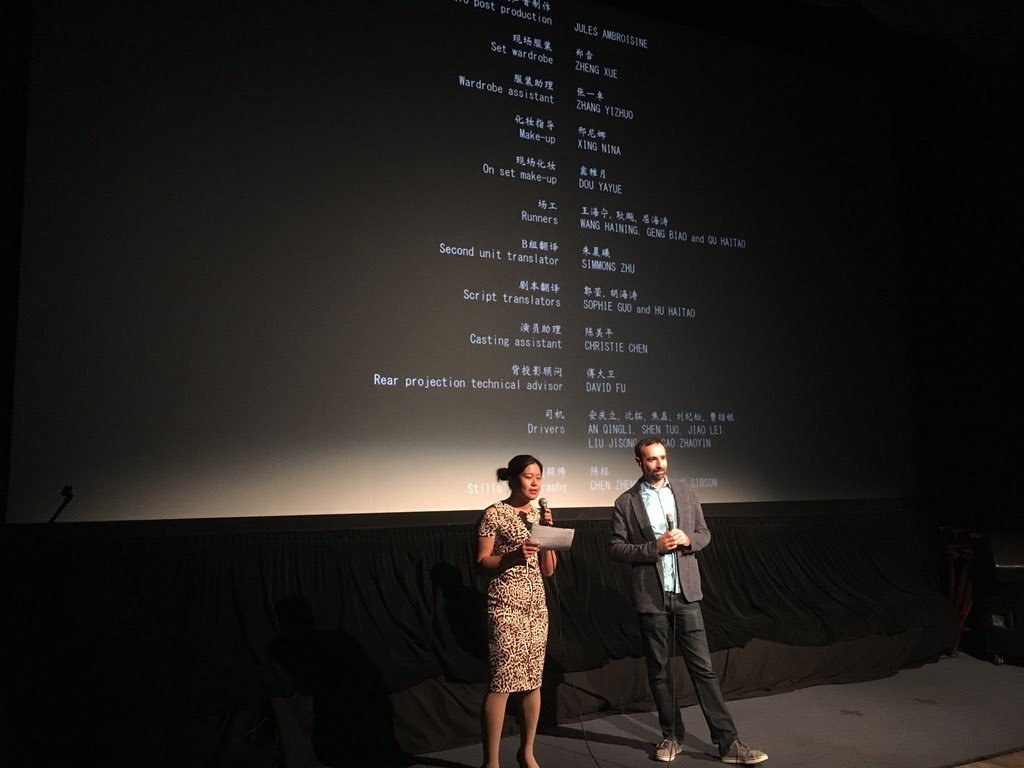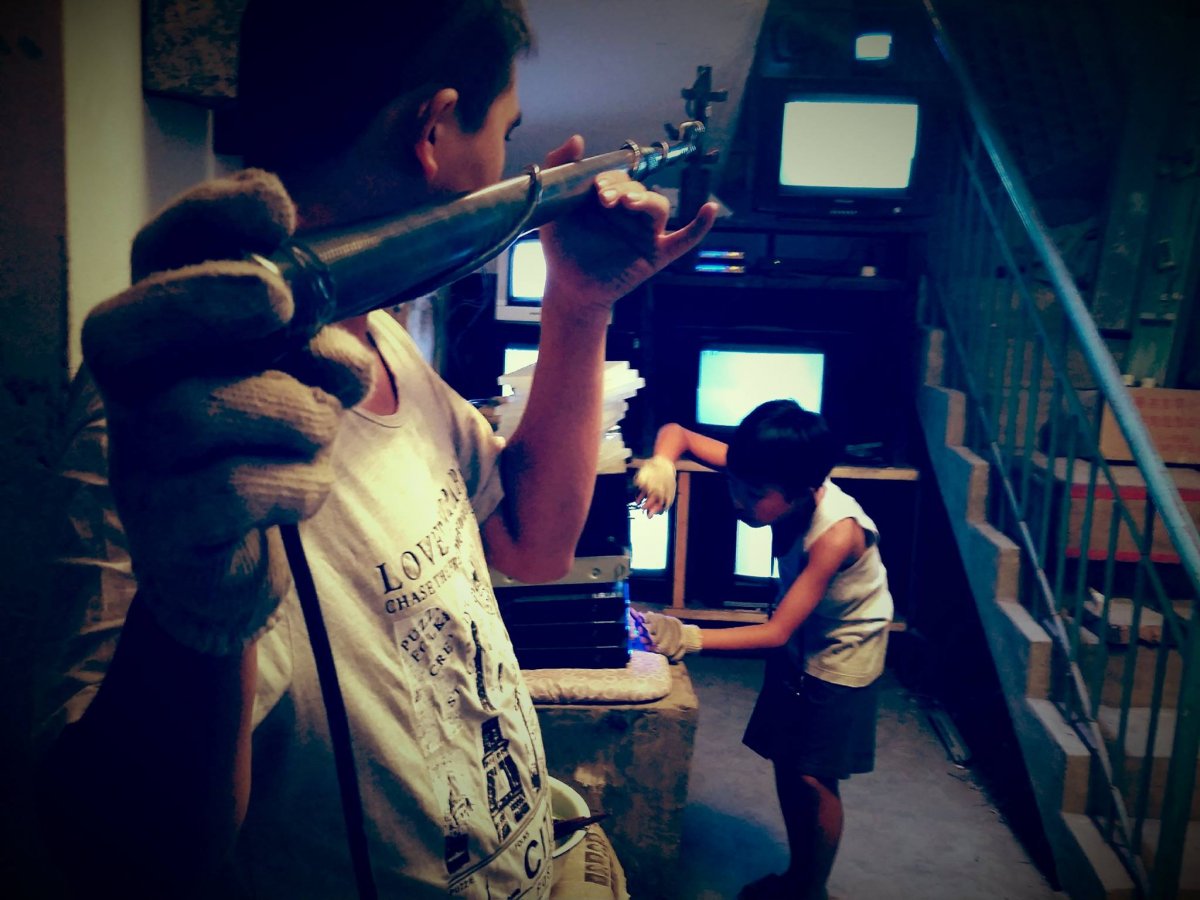Director Sam Voutas to Screen His Award-Winning Flick 'King of Peking' Dec 13 at The Hutong
Sam Voutas knew he'd made it in the movie business not after winning a golden statue or having one of his flicks screened at a prestigious premiere. No, instead the Australian-born, Beijing-raised independent filmmaker found his first bit of validation, and the inspiration for his next flick, on the shelves of a dirty bar street DVD shop.
"A week after we released my first film Red Light Revolution in the UK, I was walking in Sanlitun and saw a bootlegged DVD of the movie for sale," Voutas recalls, adding that the "bootleggers had actually been quite imaginative in their marketing, doing their own artwork, movie blurbs, and design. They even changed the names of our cast to famous actors. So that really got me wanting to do a film about movie pirates who are cinephiles."
From there, Voutas went on to write and direct King of Peking, which tells the story of Big Wong, an ambitious Beijing native in the late '90s roaming from one locale to the other with his son Little Wong and a projector in tow to screen flicks for paying customers, before overhauling his business for the emerging home video market. King of Peking recently won Best Fiction Feature at the Chinese Film Festival in LA in November, and on Dec 13 Voutas will be back in Beijing to screen it at The Hutong. Below, he tells us more about shooting the film, growing up in Beijing as an expat, and more.

Let's begin by talking about your beginnings as a director.
Well, growing up in China in the '80s and early '90s, there weren’t nearly as many options for watching films as there are now. There was the CCTV movie channel, and if you were lucky you had VHS and could trade tapes with your friends. China was much more closed. If you wanted to see a major Hollywood release, for example, most of the time you’d have to wait for your next trip to Hong Kong, which could be the better part of a year.
But I remember watching classic Chinese movies in Beijing’s old grand cinemas, or under the stars projected on a bed-sheet during the years I spent living in Yanjiao, which was country living back then. These were all memories that got me to write King of Peking. As a filmmaker, I first started making movies once I was back in Australia and a student at the Victorian College of the Arts in Melbourne. As part of our film courses, we had to shoot and edit movies on 8mm and 16mm film. So my first student shorts were about learning how to load film into the camera, how to send the reels out to be processed, then physically cutting the film with a splicer and taping a movie together. There’s a lot of that love of the process of handling film in King of Peking. Later, Melanie Ansley and I started making TV documentaries together in China. We’d shoot them on shoestring budgets, attend international documentary markets and sell them to TV stations. That led to fiction films, first Red Light Revolution and then this one.
It seems like King of Peking serves as a microcosm of China's rise and rampant development. Is that one of the metaphors you were going for?
Yep, I really did want to tell a story about the entrepreneurial spirit in China. It seemed walking around the streets of Beijing, everyone was an entrepreneur or had dreams of becoming one. From the person selling stuff on the corner to your kuaidi delivery guy, everyone had a plan on how to make it big. They weren’t going to work for someone for the rest of their lives, they were going to take an idea and be their own boss. And with a lot of these famous entrepreneurs, they started very DIY, very humble beginnings with their companies, in basements and the like. So it was really important for me to set the film in China in the late '90s. Because that was the beginning of the boom when a lot of these entrepreneurs were just setting up. The late '90s was also when digital video, first with VCDs hit the market in China. So it was a time of real opportunity if you were selling new commodities like VCD discs and machines. It was all so fresh.

Tell us about what drew you to this project in the first place, and what your major muses or inspirations were.
In terms of the tone of King of Peking, a lot of it was about working with the cinematographer and art department, and then later with the post-production coloring house, to evoke a look of old movies. We watched Godard and Italian Neorealism, and also films like Cinema Paradiso and old Chinese and Hollywood films. So we use a lot of techniques that you’d see in old movies, techniques that aren’t really used now. As a result, the film has a very old school feel to it.
Which scene was the most challenging to shoot, and how did you overcome that?
There is one ambitious shot in King of Peking that runs about two minutes long and involves the camera rotating 360 degrees around the room as actors pass and go. Whenever you try for those difficult shots, it’s going to take much longer, as myself, the camera department, lights team, actors, everyone has to be in sync. We did twenty-three takes from memory. I ended up using the very last take. I remember as we all huddled to watch the replay on the monitor after that final take, and the relief and excitement that washed over the room. That single shot took half the shooting day but we nailed it. It’s my favorite scene in the movie.
How did it feel to win Best Fiction Feature at the Chinese Film Festival in LA?
Wonderful! I wasn’t expecting the award, so when they read the film’s name out on stage I hadn’t even prepared to say anything. So we just had to sort of wing it. But the festival was great, I’d highly recommend it to other filmmakers, and I’m just so glad the jury enjoyed the film.
Anything else you'd like to add?
I’m just really looking forward to finally getting a chance to screen the film in Beijing, where the movie is set, and where our film crew is. A lot of the cast and crew hasn’t seen it yet. So it should be a fun few days of screenings.

King of Peking will be screened at The Hutong on Dec 13 from 7pm-9.30pm. Tickets are RMB 50, RMB 40 (members). For more information, click here.
More stories by this author here.
Email: kylemullin@truerun.com
Twitter: @MulKyle
Instagram: mullin.kyle
Photos: straight.com, LA Chinese Film Fest, Sam Voutas, The Hutong

